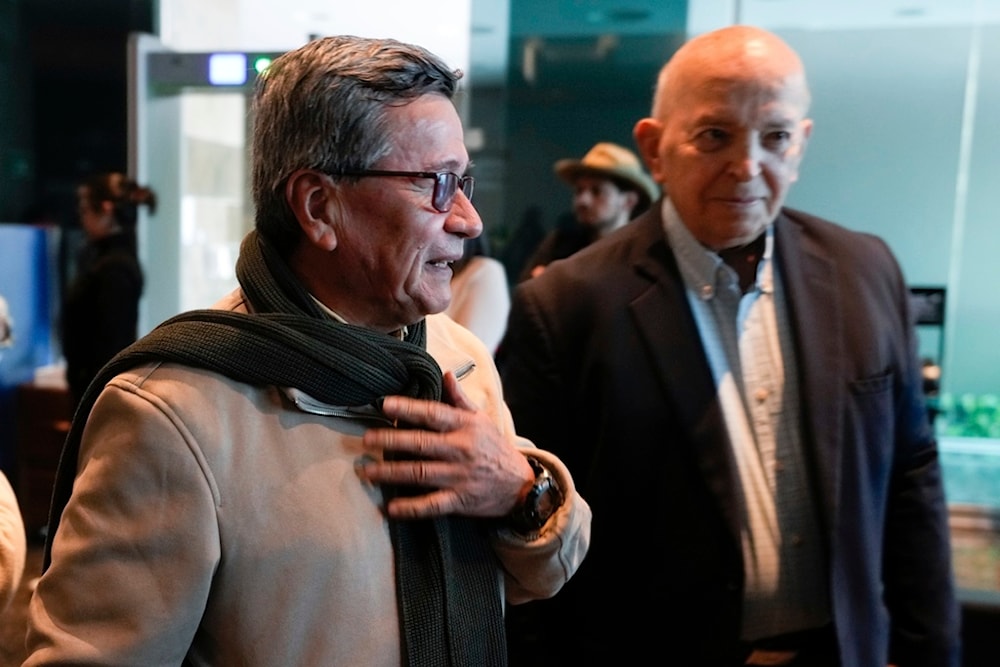Colombia guerrilla groups revoke strike, backtrack to ceasefire
Colombian rebel groups have been accused by the government of violating the ceasefire charters, prompting a return to peace negotiations and agreements.
-

Pablo Beltran, left, commander and chief negotiator for the ELN and Jose Otty Patiño, chief negotiator for the Colombian government, arrive for a press conference as a part of peace talks in Bogota, Colombia, Tuesday, October 10, 2023. (AP)
The National Liberation Army (ELN) in Colombia has decided to recall the restrictions it had imposed on civilian mobility after the government accused them of contravening the effectiveness of the temporary ceasefire.
Negotiations have been underway between the ELN and Colombian President Gustavo Petro's government to end the conflict, as well as the Estado Mayor Central (EMC) group, who had detached from the Revolutionary Armed Forces of Colombia (FARC) back in 2016 under a peace agreement.
Both the ELN and EMC were accused of violating the ceasefire during peace talks after the former called for an "indefinite armed strike" on Friday that halted civilian activity and mobility in the western region of Choco.
The ELN explained that the measure was to ensure the protection of civilians in the face of the paramilitary forces deployed in the area. However, on Tuesday, it recalled all of its measures and declared the end of the strike, thanking residents for cooperating and saying that no unfortunate incidents had occurred.
This comes after Interior Minister Luis Fernando Velasco called for army intervention, claiming "the ceasefire is not working there [Choco]".
Read more: Colombia will open its embassy in Ramallah: Petro
National Backlash
Following criticism from high-ranking religious representatives and bishops, Colombia's Peace Commissioner, Otty Patino, questioned the guerrilla parties' commitment to the negotiations taking place.
"A ceasefire is not permission to commit crimes, even less so against the population," he said.
This comes after the EMC reportedly attacked a school bus, resulting in the injury of two people, as well as blackmailing and displacing residents from several areas in Choco.
Colombian media on Tuesday cited an intelligence report revealing that the ELN was exploiting peace talks to "gain time" and "strengthen its military capabilities," while simultaneously engaging in illegal activity to obtain funds for its operations.
The report also stated that the negotiations had "reduced military pressure on its structures, which allowed them to reorganize and consolidate."
A breakthrough in Colombia
Initially, the strike was declared a few days after the ELN and the government extended the ceasefire established between both parties for an additional six months.
In June, a six-month ceasefire between the Colombian government and the country’s largest remaining armed rebel group entered into force.
The breakthrough is the most solid progress made by the government of Colombia's first left-wing leader, Gustavo Petro, on the path toward an end to the country's 60-year-long conflict with the armed group.
Read more: Colombian President announces ceasefire with rebel groups

 3 Min Read
3 Min Read








